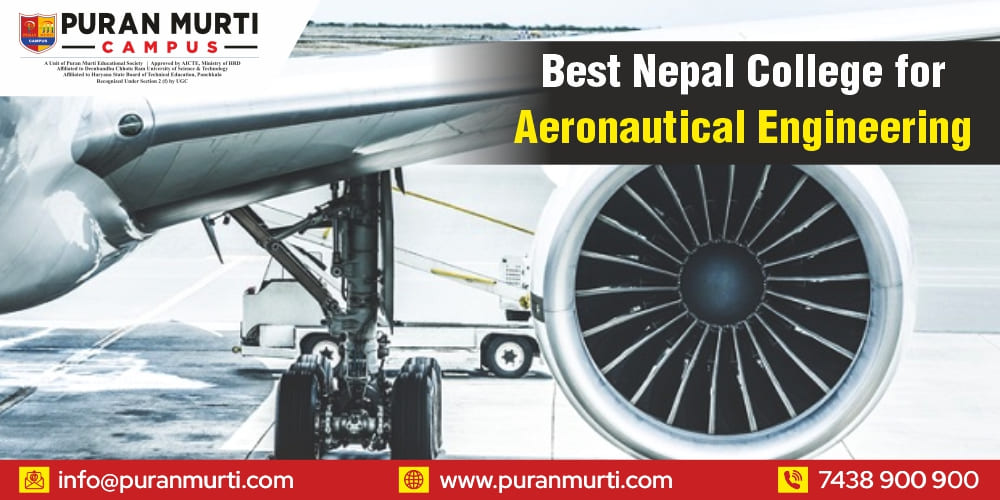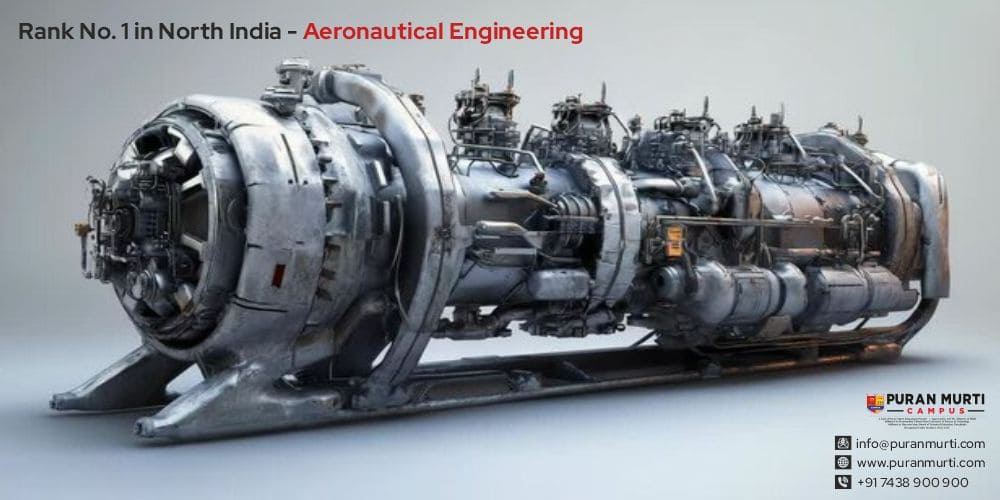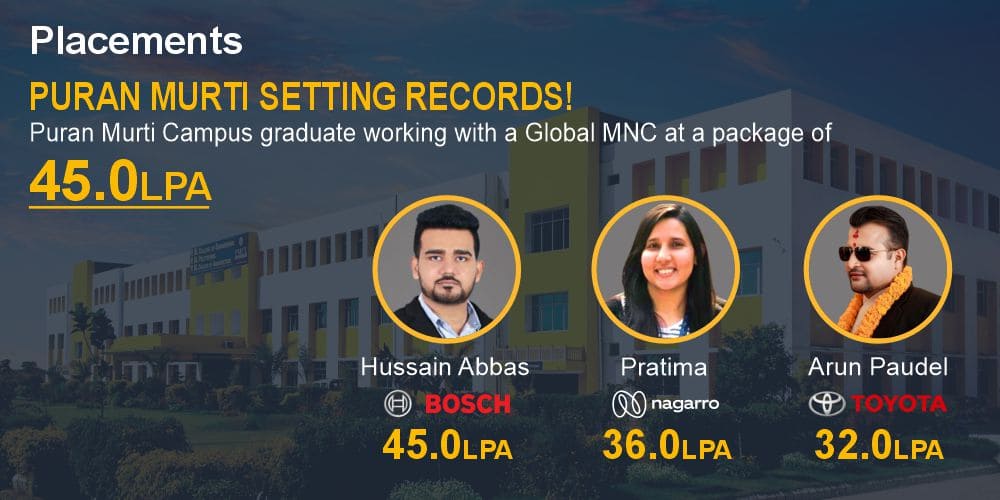Best Nepal college for aeronautical engineering
Posted on : 11 November, 2025 4:37 pm
If you are a student from Nepal and you are interested in pursuing Aeronautical Engineering, it is worthwhile to do your research on the basic issues: what are the courses, what is the infrastructure, what is global or regional recognition, and what is the career pathway. In Nepal, we see considerable gaps in full training in aeronautical engineering, and many students reference neigh bouring countries like India for strong opportunities for support. This blog examines the context, and in particular highlights a possible example of Puran Murti Vidyapeeth (PMC), as a possible choice for students from Nepal. Here is the Best Nepal college for aeronautical engineering.
The Situation in Nepal: What’s Available? Apply Now
Current status
-
Based on research and readily available sources, there are no undergraduate (i.e., full B.Tech or equivalent) courses in aeronautical engineering currently available in Nepal.
-
Many Nepalese students report limited practical exposure, older or inadequate curriculum and faculty teaching, and fewer industry or internship connections in the aerospace-engineering–application area–although many/most are engineering-related courses (at least mechanical, electronics or civil with focus on aviation/aircraft). Apply Now
What this means for you
-
If your interests lie closely with aircraft design, aerodynamics, propulsion systems, avionics (that is traditional aeronautical engineering curriculum items), you may find that attending an institution that has specialisation in those areas would benefit you more.
-
There are some relative advantages of studying in Nepal (cost through proximity and familiarity), with many disadvantages as a trade-off (less specialisation or capability, less aircraft-maintenance links, less prestige in global recognition).
-
So, with that consideration for intricacies or students wishing for the best quality of aeronautical engineering training, the realistically viable option is to explore colleges outside of Nepal (especially nearby India). Apply Now
Why Consider Puran Murti Vidyapeeth (PMC)
Let’s closely examine why PMC might be a viable option to consider for not only Indian students interested in a high-quality subsidiary program (ie; based on other complexities a diploma program would cost less in India), but also to examine one of the possible better options for Nepali students who are seeking high quality aeronautical training. Apply Now
Key Highlights of PMC
-
Course offering & scope
-
PMC offers a 4-year B.Tech in Aeronautical Engineering. The syllabus includes courses in aircraft materials, structural analysis, fluid dynamics, propulsion, and aerodynamics etc.
-
The program of study is designed for students with 10+2 qualifications (Physics, Chemistry, Maths) or engineering diploma desirable for lateral entry Apply Now
-
-
Infrastructure & practical exposure
-
PMC asserts that it offers “live aircraft” and training in genuine hangars/workshops: e.g., “Best Training Facilities … offer training in their own aircraft and helicopter in Campus”.
-
Significant mention is given to hostel facilities, as sports and other extracurricular-related infrastructure. Apply Now
-
-
Recognition & location
-
PMC’s location in the Delhi-NCR region (Sonipat, Haryana) in India, is relatively accessible to Nepalese students (both in terms of geography and cultural familiarity).
-
PMC is affiliated/recognised through Indian engineering accreditation standards (e.g., approved B.Tech courses in India). Apply Now
-
Detailed Programme Breakdown of your experience at PMC
Eligibility & Admission
-
Admission criteria includes have a completed 10+2 PCM: Physics, Chemistry, Maths Your admission may based on entrance exams JEE, AME CET, or at the discretion of the institute entrance test/ merit basis.
-
For students from Nepal, Apply through the Nepal-office, make sure your qualifying board certificate is recognized, and you have reviewed equivalence.
-
Number of seats available; for Aeronautical Engineering at PMC, one reference showed seats for Aeronautical Engineering at 60. Apply Now
Duration & Structure
-
4 years (8 semesters)
-
General semester breakdown is that the first year is focused on initial core subjects (Maths, Physics) and then specialization engineering modules will be phased in as you go through the program in subsequent years. Apply Now
Syllabus & Core Topics
-
Aircraft Materials & Structures
-
Fluid Mechanics / Aerodynamics
-
Propulsion Systems (e.g. Jet engines)
-
Avionics & Control Systems
-
Aerospace-related CAD/CAM/Simulation
-
Workshops and aircraft maintenance practicals. Apply Now
Fee Structure
-
According to a single reference (on its AMECET profile), the annual tuition per year is approximately INR 1,50,000, plus any admission/registration/library fees.
-
For Nepali students: While the amount may vary somewhat (based on currency exchange or a special quota), you’ll need to look for the current fee schedule. Apply Now
Infrastructure, Labs & Training
-
PMC places a strong emphasis on training “live aircraft”: i.e., being able to access real aircraft and a helicopter, and being housed in a hangar where you can practice your skills.
-
There may be workshops or wind tunnels (or at least something equivalent — but ask about how extensive these are!). The words “Air Flight Vehicle developed by students” indicate activities and projects that are happening. It’s also possible to stay in comfortable hostel accommodation for girls and boys, and there is WiFi on campus together with the capacity for sports, etc. Apply Now
Placements & Career Support
-
PMC believes that they have a strong track record for placing their graduates in different positions, and that they worked in collaboration with the industry for placements, as well as, along with a wide spectrum of support for the students with a specialized training program.
-
For your benefit, as a Nepali student, specifically ask about placement: how many graduated students went on to work in the aerospace sector, or went on eventually to work for companies, and what salary ranges the students achieved.
Summary & Final Thoughts
-
If you are a Nepali student and want to pursue your education and career as an aeronautical engineer, as of the time of writing there is currently no full undergraduate English language aeronautical-engineering program in the country. Apply Now
-
Therefore, studying abroad (or nearby in India) is another solid option to consider—especially to for reliable infrastructure and industry connections.
-
The Puran Murti Vidyapeeth (PMC) is certainly a strong choice; they have their own Bachelor of Technology. They also offer a good and trusted infrastructure, they are near Nepal, and the fact that they have an inclination towards Nepali students is promising.
-
You will need to do your own homework: ensure the aeronautical-engineering course you choose will actually focus on aeronautical/aviation, and not just be a regular engineering program. Ensure the programs are also recognized/accredited by an airline authority (check for possible pilot licensing). Consider costs vs job prospects; and whether they assist with placements after finishing the program.
-
When you eventually choose to study at PMC or wherever you study, engage yourself fully; attend lab sessions, internships, projects and build up your achievements to help you stand out in the competitive aviation/aerospace marketplace. Apply Now



